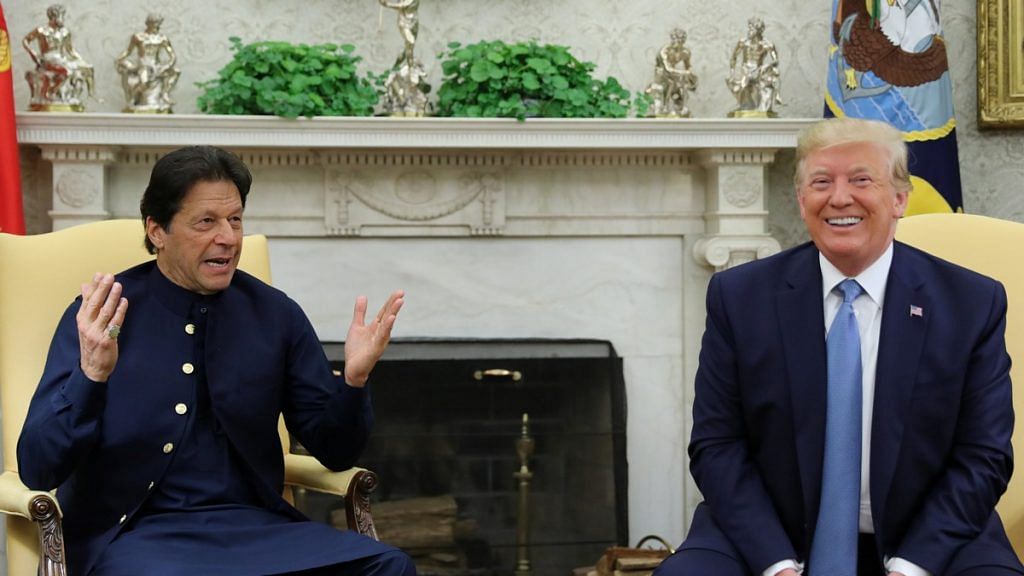Pakistan is in the eye of a gathering storm. All the dangerous signposts ahead are clearly marked. For better or for worse, the decisions made and routes taken by our current civil-military leadership will make all the difference. Consider.
There is, truly, an unprecedented economic crisis. The leadership is still floundering after a full year of indecision or misplaced concreteness. Assistance from Saudi Arabia, China and the IMF is not without stiff political and economic conditions. By all independent accounts, many of these conditions relating to fiscal and trade deficits, inflation, growth, etc., will remain woefully unfulfilled. This will lead to stop-go logjams, uncertainty and political instability on the back of pervasive hardship for the common man.
There is also a simultaneous geo-strategic crisis at hand. On the one hand, America is leaning upon Pakistan to fulfill its pledge to pressure the Taliban to deliver a stable and peaceful power sharing dispensation in Kabul that allows for a safe and honourable exit for US troops from Afghanistan next year. On the other, India is determined to degrade whatever advantage Pakistan can derive from such an arrangement no less than the other Afghan players who are all inclined to lean towards India. But, significantly, the US and Kabul are both insisting that Pakistan must not link a multilateral Afghan “solution” to its bilateral problem with India even as the latter is making aggressive moves against Pakistan.
Also read: Britain meddling in Kashmir issue has a lot to do with how Pakistani origin people vote
The problem for Pakistan is therefore two-fold. In order to continue receiving economic assistance from the IMF and other international financial institutions controlled by the US, Pakistan is obliged to comply fully and irrevocably with Washington’s political agenda on its terms. This is going to be a tough job. Simultaneously, Pakistan cannot afford to be baited by India vis a vis its recent unilateral annexation of Jammu and Kashmir, its proxy warring in Balochistan and FATA, and its border incursions. If economic management in such a harsh environment is going to prove difficult, imagine how much more impossible it will be for the civil-military leadership not to respond in equal measure to India’s aggressions. For seventy years, the theory of Realism has compelled a zero-sum game between the two adversaries. Now, however, it seems as if India is going one-up and there is nothing Pakistan can do about it. In the old days, Pakistan would have jumped into the Kashmir fray with state and non-state action. Now the best it can do is downgrade diplomatic relations and suspend trade, even though the former is meaningless and the latter will hurt Pakistan’s economy more than India. This will lead to bitter and sometimes unbridgeable angst not just within the rank and file of the civil-military leadership but also among its support base in the people of Pakistan.
In short, the critical “reset” that the civil-military leadership is now seeking with the US is fraught with pitfalls. It also implies a “reset” of its thinking about the role and status of Afghanistan in Pakistan’s National Power strategy. More importantly, because Pakistan’s Afghan strategy emanates from the compulsions of its strategy vis a vis India, there will be enormous international pressure to “reset” this relationship with India too at the same time. That would help to explain the timing of India’s move to annex J&K and conclude the “unfinished business of Partition” to its advantage.
Therefore, four hard, critical and simultaneous “resets” are required from the civil-military leadership. The economic “reset” cannot be accomplished without US support. US support won’t be forthcoming if its Afghan agenda is not delivered. The Afghan agenda can’t be delivered as long as India, with implicit support of the international community, is threatening to undo 70 years of Pakistan’s National Power policy. The problem is magnified by the fact that Pakistanis are not ready to meekly submit to economic hardships; the Taliban and other Afghan stakeholders are not ready to accept Pakistan’s advice or pressure; the US is not ready to accept “excuses” for failure, and India is determined to push ahead with its advantage.
On its own, the civil-military leadership is in no position to manage these four “resets” without major upheavals in the framework of state and society. One precondition in preparation for confronting these harsh realities is national consensus and political unity. But the civil-military leadership is lacking on both fronts.
In fact, it can be argued that the civil-military leadership seems to be moving in the opposite direction. Instead of bringing all political stakeholders to the table, it is putting them into prison. Instead of encouraging the critical media to invigorate the debate over the four “resets”, it is gagging it. Instead of striving for a national consensus on the way out of this multi-faceted crisis, it is confusing and alienating public opinion. The economy has taken the old tactical and strategic equations hostage. Under the circumstances, it is past time for this leadership to shape up and “reset” itself.
This article was originally published in The Friday Times.
Also read: This is why Pakistan can no longer respond militarily to India’s Kashmir move
